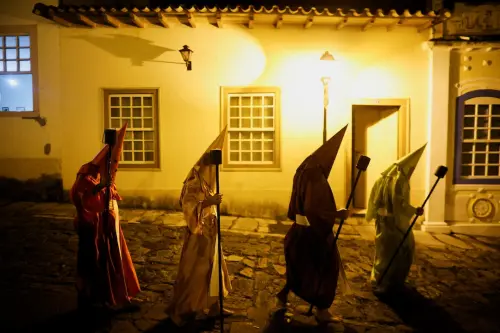Introduction
Brazil, known as the world's largest Roman Catholic country, witnessed a decline in its Catholic population in 2022, according to recent census data from the statistics agency IBGE.Context
The census revealed that Brazil had 100.2 million Roman Catholics in 2022, accounting for 56.7% of the population, a decrease from 65.1% or 105.4 million recorded in 2010. This long-term trend reflects a steady decline in Catholic affiliation over the years.Developments
In contrast, the share of evangelical Christians surged to 26.9% last year, up from 21.6% in 2010, adding 12 million followers to reach a record high of 47.4 million. This shift in religious demographics may pose challenges for Brazil's leftist President Luiz Inacio Lula da Silva, whose Workers Party has often found it difficult to appeal to the evangelical population. Recent polling data from Quaest indicated that only 30% of evangelicals approved of Lula's administration, compared to 45% of Catholics.The decline in Catholic representation traces back to the beginning of official records in 1872, when individuals were only categorized as Catholic or non-Catholic. According to Maria Goreth Santos, an IBGE analyst, enslaved individuals comprised a significant portion of Brazil's population at that time and were all counted as Catholics, irrespective of their actual beliefs.
Despite the decline, Catholicism remains Brazil's most prevalent religion; however, its influence varies by region, with fewer Catholics found in the Amazon and a higher concentration in the Northeast.
The census also reported a rise in the percentage of Brazilians identifying as having no religion, increasing to 9.3% from 7.9%, which amounts to 16.4 million people. Additionally, Afro-Brazilian religions, including Umbanda and Candomblé, have also grown, with their followers rising from 0.3% to 1%.
